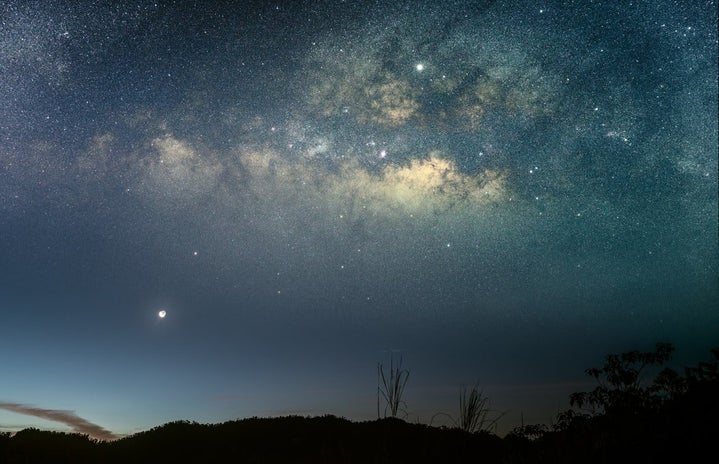Once again, the advent of the greatest month in Islam is upon us: Ramadan. It was at this month the Qur’an was revealed to the Prophet Muhammad (peace be upon him). During this month, we dedicate ourselves purely to our faith. It’s a time for the purging of sins, bad habits and temptations while the Shaytan (Satan) – along with other evil spirits – is locked away. In our fasting, we are forced to reckon with our flaws and manifest our wishes for improvement. It’s a time for action, not just verbal affirmations. But last year, our holy month felt different. Over April and May, we were scared for our lives. It was the height of the country’s COVID fears, the first encounter of a national lockdown and we stood at our doors clapping at 8pm every Thursday. I was depressed after my first year of university was cut short, and exam season was looming right in the midst of a pandemic. But I had Ramadan to look forward to, right?
The month seemed somewhat dampened by the lack of human interaction. One of the central aspects of the experience is celebrating with the community; going to the mosque every night (perhaps more than you ever did all year), meeting family, going to Islamic lectures and congregational prayers, organising charity events and enjoying iftar (breaking fast) with your loved ones and even strangers. Community is the strength of Islam, and a Muslim’s interaction with peers even affects one’s own faith. Typically, Muslim communities throughout the country hold free iftars on a mass scale in public spaces, for the homeless or anyone else to join in and break bread. The year before last, an open iftar was held at Trafalgar Square, organised by the Ramadan Tent Project in collaboration with the House of Lords. Muslims have to go through a test of faith annually during this month, but the isolation only seemed to amplify and complicate things. There’s a concept called “ummah” in Islam – every Muslim is a brother and sister to one another, and we are all protégés of the ideal model of humanity, Prophet Muhammad (peace be upon him). The pandemic stripped away this aspect of collective experience in our holy month, disconnecting us. At a time where we usually aim to be selfless, we were left by ourselves.
So, what did we gain last year? What changed for us in this eternally unchanging month? Well, for one thing, solitude. We’re prompted to be more introspective, and there’s a bigger opportunity for self-reflection and worship – which is the core of Ramadan – at home, free of worldly distractions. We were literally shut off from the rest of the world, and in turn we could retreat back into humility and focus on ourselves as believers of Allah the Almighty. Although last Ramadan was one of the saddest, unconventional ones in recent history, it was somewhat apt. Ramadan is a month that tests our self-control and discipline. Muslims and non-Muslims alike were faced with many sacrifices: not going to school, working from home, not seeing our friends or family, not going shopping, people losing their livelihoods, and putting those vulnerable to the virus before ourselves. So, it served the purpose: giving up worldly things and focusing on the hereafter and what you can do to get there. The intention of Ramadan is to change and build yourself up. How can you do better? How can you be better? When you’re alone you can hold yourself accountable. The pandemic was a window of opportunity for us to remind ourselves that Ramadan is not just about abstinence and breaking fast every day for 30 days straight. It’s about self-improvement and striving to comport yourself better as a person and as a Muslim so that you can be granted a place in Paradise.
“…Allah intends for you ease and does not intend for you hardship and [wants] for you to complete the period and to glorify Allah for that [to] which He has guided you; and perhaps you will be grateful.” — Surah Al-Baqarah 2:185
The Quran tells us that all our hardships and struggles are nothing we can’t completely handle, and that Allah is prompting us to remember to always turn to him in times of need. In this chapter of strife and illness, human endurance is central to the story, and Ramadan is a golden month of spiritual healing and strength.
Ramadan will approximately arrive in April this year, but as usual it will depend on the sighting of the moon. Let’s hope this year it turns out well for us all, and let’s celebrate this silver lining.



